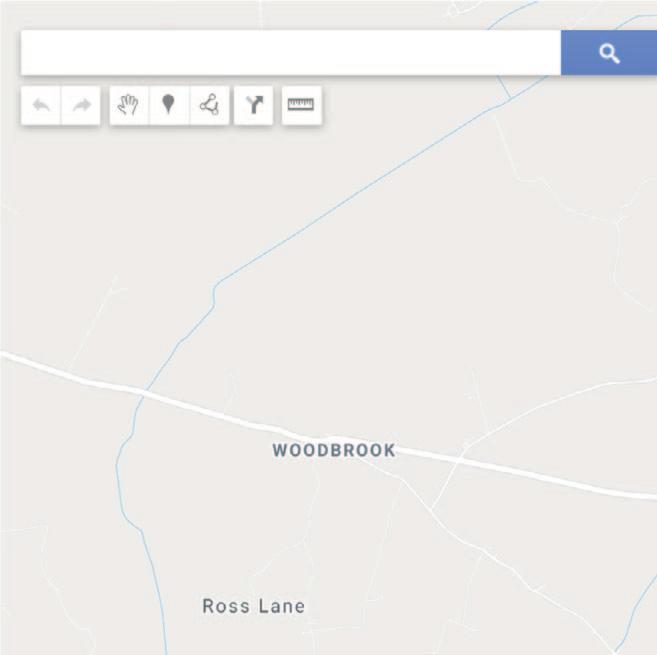
9 minute read
n The power of representation
THE POWER OF REPRESENTATION
NEW SCSI CEO SHIRLEY COULTER SPEAKS ABOUT HER AIMS FOR THE SOCIETY, AND THE IMPORTANCE OF PROFESSIONAL MEMBER ORGANISATIONS.
hirley Coulter brings over 14 years of experience in professional member organisations to her new role as CEO of the SCSI (see panel). At the time of our interview, she’s been in situ for just six weeks, but says this experience, and the welcome she’s received from members and staff, has made the transition a very pleasant one: “It feels familiar, even though it’s a different industry. Also, from the minute that the appointment was announced, people have reached out, which I hugely appreciate”. Shirley plans to use her experience to good effect in her new role, with an emphasis firmly S
on what members need from their professional organisation, and how best to provide it: “I’ve seen what works, and what doesn’t work as well. What has to be key is that member focus, the ‘member first’ outlook, because our whole raison d'être is to serve members, in the public interest”. She knows that it’s not necessarily the ‘big ticket’ issues that concern members: “The real issues are the ones that affect their day-to-day working lives. We can add value in lots of ways, at a very high level, and we will continue to do that, but really, it’s about tuning in to how can we help members in a very practical way”. She sees the challenges that member organisations face, such as the need to avoid being too ‘Dublin-centric’, and to be relevant and appeal to different age cohorts and genders, but for Shirley, there’s also a ‘squeezed middle’ that can sometimes be neglected: “People who are maybe struggling to find a work-life balance, who have been caught up in some of the repercussions of the economic downturn and still may be impacted by that. There’s a whole generation there that I think, as the profession’s representative body, we need to be tapping into and they are quite difficult to engage because they are busy with childcare, or elderly parents. They are definitely a focus”.

Ann-Marie Hardiman Managing Editor, Think Media INTERVIEW
Having your voice heard Shirley is from Dublin, but has fond memories of idyllic holidays in the west of Ireland, where her parents are from. Her first taste of public representation was a stagiaire position as a parliamentary assistant to an Irish MEP in Brussels during her Erasmus year, while studying French and politics in UCD: “That gave
me my introduction to representation and what it means to have your voice heard”. Shirley has a master’s in globalisation, law, politics and economics, and first began working for member organisations with a post as Employment and Communications Officer with the Irish Dental Association. This was followed by seven years with the Irish Medical Organisation, after which she moved in 2015
to The Bar of Ireland, where she was Director of Membership and Public Affairs. Shirley joined the SCSI as CEO in January 2020.

Priorities These issues naturally feed into Shirley’s priorities: a firm emphasis on meeting members’ needs, while using the expertise within the Society to make a contribution in wider society: “I want to build on what has already been achieved. The SCSI is a wonderful organisation, and I believe in the value that the Society adds, both for members and for the public, in the impact that we have on the construction, land and property industry”. Those wider social issues encompass both the global and the local: “Ireland is so susceptible to large global economic shocks and we have to be prepared for that. I hate to use the word Brexit, but the impact of that has yet to be realised. The market has stabilised but I keep hearing that we’ve been at a late stage in the cycle for a long time so we can’t be complacent. And more recent issues like coronavirus, the US elections – all of that has the ability to impact on the global economy. That is going to be an issue for everybody, but particularly the construction and property industry. We’ve seen how economic difficulties impact heavily on this industry”. At local level, there’s no doubt that housing supply is the most pressing issue. Our interview takes place just two days after the general election, and as we go to print we’re no closer to an announcement on government formation, so there’s no way of knowing which party’s policies will be implemented. For Shirley, however, the fundamentals haven’t changed: “We need to reduce construction costs and we need to ensure that we have the skills. We barely have sufficient skilled manpower to meet the demand now, let alone the demand that is going to arise from the need to increase housing supply. The election saw many, many promises, but there isn’t any one single solution. They’re going to have to take everything in the round, and be innovative”.
She points out that the Society made its views clear on these issues in the run-up to the election: “[The new government] needs to look at things like the cost of land, construction costs in general, and at embracing technological innovation. They need to address the skills issue, because who physically is going to build them? The message remains clear from the SCSI that we have the expertise here and we’re willing to share that, and work with government and with the various departments to make sure that the right policy decisions are made, and that solutions are costed, realistic and achievable”. The Society has a huge amount to offer here: “Our strengths are the high standards, the education and the expertise of the profession, which is evident in all of the SCSI’s outputs from reports and submissions to conferences and events. The fact that our members are engaged at every stage of the life cycle of a build situates the SCSI in a unique position to develop positions that are more joined-up in terms of our recommendations for key property and construction policy formation”. Governance In order to maximise these valuable assets, Shirley emphasises the importance of having structures within the Society that encourage collaboration and communication across the many professional groups and committees. A governance review that had begun before she took up her role has now resumed, and this is one of its principal aims: “Our structures at the moment aren’t maximising the benefits that can be gained from bringing all of that expertise to the one table. It’s about knowing where the SCSI has come from to know where we are now and where we need to be, and then align our resources and our strategy to deliver that for members. Member engagement in that process is obviously going to be key. The focus is on ensuring a solid foundation by seeing what’s working, what maybe needs some attention, and then building on it to ensure that the organisation is structured to best deliver for its members”. The Society hopes to have the new structures in place for the start of the new committee year in May. Member organisations Shirley recognises that many member organisations are struggling with what can be called the “race for relevance”: “Because of the way technology has enabled “ WE HAVE THE EXPERTISE HERE AND WE’RE WILLING TO SHARE THAT, AND WORK WITH GOVERNMENT TO MAKE SURE THAT THE RIGHT POLICY DECISIONS ARE MADE, AND THAT SOLUTIONS ARE COSTED, REALISTIC AND ACHIEVABLE.
access to information, a lot of people feel expert in a lot of areas that they wouldn’t have previously. They may feel that they don’t need the member body, that they can find the knowledge they need elsewhere”. Challenging that perception is difficult, but Shirley’s very interesting approach is to turn the question on its head: “I've often tried to explain what member bodies are to people and what we do, but another way of looking at it is: what would happen if we didn’t exist? People can find it difficult to understand if they haven’t engaged with services that we provide, if they never come to conferences, or they don’t have time to read policy papers or reports. But if professional bodies didn’t exist, what would happen? Where would the profession go for CPD? Where would they find the myriad of educational, networking and social events? Where would they go for professional guidance or support? Who would be the voice for the profession?” She is absolutely convinced of the value of this for the public as well: “Strong representation for the professions means a good deal for the public, because the professions are here to serve the public. If we can make sure that we’re producing surveyors that are held to the highest standards, that are offered a suite of continuing professional development that enhances their expertise, and we’re producing policy positions and reports based on all of that expertise that will positively influence, for example, things like housing supply, then that is hugely important. And if we didn't fill that role, who would?” Shirley acknowledges that member organisations sometimes have to work to convince the public that they’re not simply another vested interest: “I think we need to be better at marketing the value of the Society to the public. We need to market the value of the profession to the public, and market the value of membership to the profession. People engage professionals in good faith. And I suppose what we would say, and that’s where the ‘Check they’re Chartered’ campaign came out of, is that we provide a greater level of comfort for the public because if you engage a chartered professional, you know you're getting the highest standard”. So how will Shirley measure success as she goes through her first year in this role?: “If I really feel that I’ve engaged with the membership and know that I understand what their expectations are in terms of what the Society does for them, the value that they get from the Society, and that they feel that their interests are represented. If I have a happy and committed staff to meet those expectations for members. And if we have aligned our governance structures to better harness our expertise, so that we can have that positive influencing role in terms of the future development of the sector. That’s what I would like to see after year one!”
Building strength Shirley lives in Dublin with her husband and two young children, who naturally take up a lot of her time. When she’s not spending time with them, she reads, and loves to eat out (“I’m a bit of a foodie”). She admits though, that one thing that definitely helps her to relax, is checking her emails! “I'm very bad at being able to switch off. I prefer to check my emails and know, even if it’s out of hours, that everything’s OK.” She also keeps fit, and sings the praises of strength training: “It requires focus and dedication but that means it is brilliant for both your physical and mental health. I highly recommend it!”









